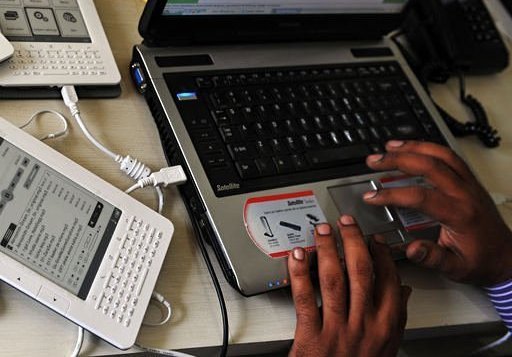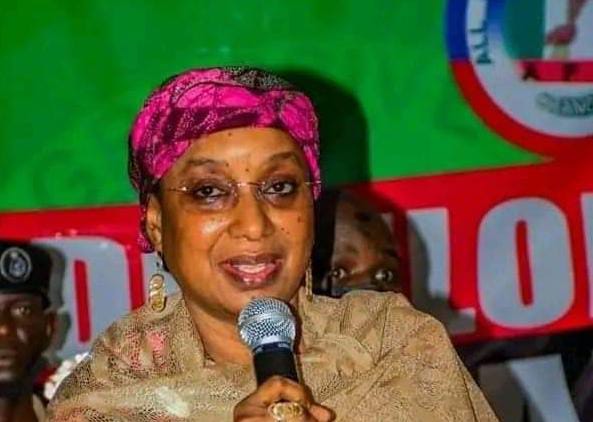E-commerce potential is huge globally and in Nigeria, 2023 is expected to see huge growth over the previous years. E-commerce potentials in a metropolitan city like Lagos cannot be ignored given the busy nature of citizens in the city. Customers want to get things; buy the majority of items they want without having to drive through a long traffic. Customers want to save time which has become a scarce commodity.
Unfortunately, with all the benefits of e-commerce comes the challenge of fraudsters who have been on the increase in Lagos like any other cities in the world. A major concern here is lack of adequate attention to this challenge by relevant regulatory agencies and other stakeholders.
E-commerce naturally is driven by the rise in technology and smartphones in this instance. More importantly, a rise in the middle class population is fuelling adoption. Digital commerce has paved the way for e-storefronts for small retailers through creation of a seamless shopping experience for their customers. The opportunity here is huge. 2023 e-commerce revenue is projected to reach S$7,627.6 million in Nigeria while prediction for global revenue stands at US$9.02 billion One other lead that is aiding e-commerce is the cashless policy introduced in Nigeria with encouragement of electronic banking.
Lagos is one of the largest cities in Africa with a population of over 19 million. Being the economic nerve centre of the nation, it is not a surprise that e-commerce thrives exceptionally in the city. But this also comes with lots of frustrations.
Advertisement
E-commerce and fraudsters in Lagos
In November 2021, this reporter saw an item for data use that reduced cost beyond the usual cost of N4,300 and jumped at it after making a call to the seller and secured an agreement for payment into a verifiable commercial bank account. In my mind, I believed with these two, I should be able to track the seller if anything went wrong.
After the payment the rest is story as they say. No data, seller’s phone not reachable and the bank account paid into was all scam
Since then, I have been looking for verifiable claims of other Lagosians who had been victims of fraudsters like me. On Monday April 10, 2023, I stumbled on a conversation started by Sola Salako Ajulo, on her Facebook page with regards to how she had just defrauded the sum of N26,000. That seemed to be the beginning of stories of woes as victims upon victims spilt the beans.
Advertisement
Bola Rotimi, opened the can of worms when he said: “Too many scammers out there. I was scammed of 100k by a certain Farmer’s Click lady whom I had initially met physically in 2015/2016”. Goldfish Rahmatulai said: “419 business is booming because most people like cheap sales and the criminals know this”. Steve Ayorinde in his response said: “There’s a whole gang of them on Instagram and Facebook. All into fake deliveries of food/edibles”.
Maureen Okoh, another participant in the conversation said “I was scammed of 170k on ‘Jiji’ another online platform”. Another victim, Adu Deola said “This was how I was scammed of 62k. I went to the bank and was told nothing can be done except I get a court injunction”. Ope Banwo while contributing to the conversation said “I know someone who paid N550k for a laptop that never came, these are mad people” referring to ecommerce fraudsters
While corroborating Sola Ajulo’s claim said “This was the same guy who scammed me last year, it was the same snail business and he blocked ma after”. Babs Femi, another victim says “I was scammed 46k by one Olabest, just like this case it was smoked Turkey sales”.
Avoiding disaster, escaping fraudsters’ nets
Advertisement
There are several legislative and other financial protocols and agencies that can protect unsuspecting members of the public, who seem not to be up and doing in their duties. In Lagos, we have Lagos State Consumer Protection Agency (LASCOPA) and at the federal level, we have Federal Competition and Consumers Protection Agency, Economic and Financial Crimes Commission etc.
Nigerians had come out with advice that can help those who patronize online retailers. “Avoid paying into a personal account when making payment in any online purchase”, Emmanuela Orechi advised others. Another victim Omoge Bisi is of the opinion “Many of these virtual bank accounts like Opay should be avoided as they do not have enough information to track their account owners. Their ‘Know Your Customers ‘details are often not the best”. Hakeem Gurin in his submission said “Many scammers now use Opay and other virtual payment platforms that are not operated by commercial banks”. Afolabi Solebo advised “…Just like an online transaction of this nature sounds good, easy and interesting, do not pay before delivery”. Abiola Bilikis believes online buyers should learn to review others before making payment. She said “This Kunle farm scammed me in February and I did my best to spread the news but our people will not just share”.
“For every seller on Facebook, there is an urgent need for an escrow account,” Oluwaseyi Ajibola advised. Another e-commerce retailer, Adebimpe Oshodi said “When the price is too cheap compared to what is available, do beware. I can tell you I saw the ads of Kunle Farm whom you feel victim to and I wonder where would he get snails to sell at that price as I sell snails too”
When you are scammed, Obalola Bolanle said “If there is a phone number, you can report the number to the Nigeria Communications Commission. In addition, there will be a BVN attached to the phone number attached to the name that can be blacklisted”. Like this reporter experienced, the number is not listed and how the fraudster could make and receive calls is still a concern”.
Adelowo Adegboyega advised “Central bank of Nigeria has a lot of work to do, it must make it compulsory for Fintech not to open accounts for anybody without BVN and NIN”.
Advertisement
A major step that has been taken by some members of the group is the creation of an online platform on Facebook named ‘Verified Naija Scammers list with their account numbers’. The page has a retinue of lists of identified scammers and their account numbers on display.
Is there a rise in ecommerce fraud and online financial transaction crimes?
Advertisement
Nigeria Inter-Bank Settlement System (NIBSS) fraud report released for Q3 2020 presented by various financial institutions, showed the bulk of this loss occurred between July and September 2020, when companies lost up to ₦3.36 billion. This was a 510% increase from the ₦550 million lost to fraudsters in the same period in 2019.
A recent NIBBS report says “Instant payment transaction underwent a more than four-fold increase between September 2019 and January 2023 to N38 trillion ($82.6 billion)
Advertisement
A need for strong, secured legal frameworks that protects buyers.
With all the opportunities derivable from e-commerce, there is a necessity for strong, protective, secured legal framework as well as collaboration among stakeholders for a vibrant e-commerce especially in a country like Nigeria with lots of challenges with technology adaptation. This seems to be the major challenge of e-commerce in Nigeria as regulatory agencies and other concerned organisations like banks seem to be inefficient in their duties towards the citizens.
Advertisement
“Even when an official complaint is made to the bank, bank will never refund the victim’s money except through a court injunction,” Ismail Kolawole said in a tone of helplessness.
Views expressed by contributors are strictly personal and not of TheCable.
Add a comment







